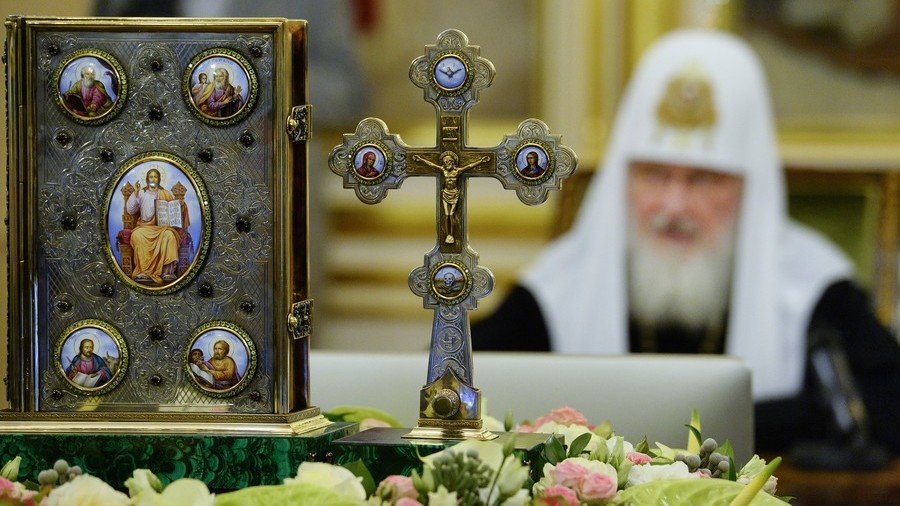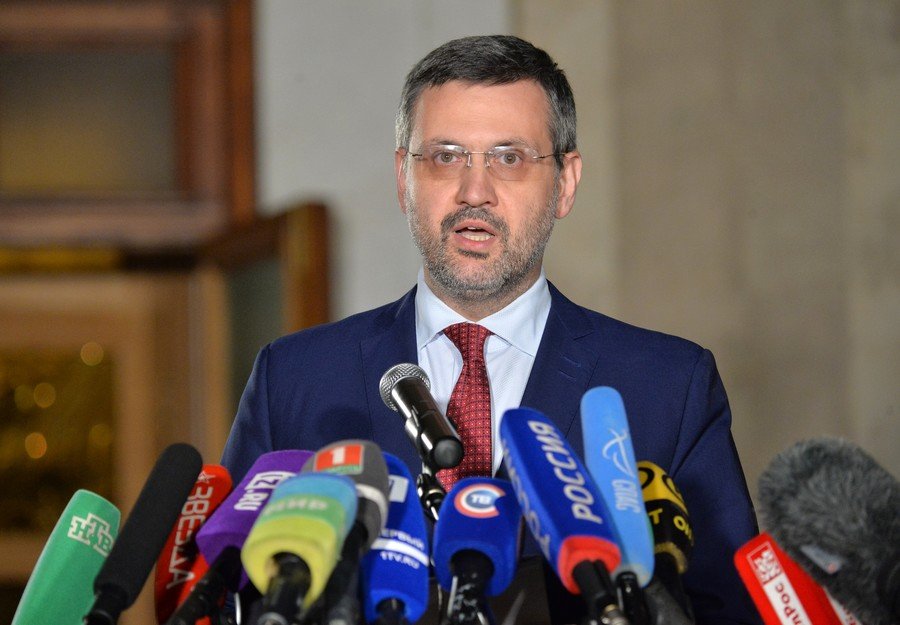Orthodox Christianity bordering on a 'Great Schism,' but crisis can be resolved – Russian Church

The current situation within Orthodox Christianity resembles the Great Schism that divided Catholics and Orthodox Christians, a spokesman of the Moscow Patriarchate's Holy Synod said, noting that the rift can still be healed.
"The situation is very much closer to the 11th century" than it is to any period of minor disagreements between the Orthodox Churches, Dr. Vladimir Legoida, the head of the Russian Orthodox Church Holy Synod's department for relations between the church, society and the media, told RT, referring to the times of the Great Schism of 1054, which marked the break of communion between the Catholic Church and the Orthodox Churches.
"Still, we hope that it will not come to a [real schism] and the situation will change," he added, commenting on the full break of relations between the Moscow and Constantinople Patriarchates, after the latter decided to grant official independence and clerical authority to a breakaway division of the Ukrainian Orthodox Church, which had previously been part of the Moscow Patriarchate.
Following Constantinople's decision, the Holy Synod, the governing body of the Russian Orthodox Church, ruled that any further clerical relations with Constantinople are impossible. The Moscow Patriarchate also said that it would not abide by any decisions taken by Constantinople and related to the status of the Ukrainian Orthodox Church.
These developments marked a rift between the two major Churches of Orthodox Christianity. With a congregation of just over five million followers, the Ecumenical Patriarchate of Constantinople is still considered to be the oldest Orthodox Church and the Mother Church of most modern Orthodox churches while its leader, the Ecumenical Patriarch, is widely seen as the spiritual leader of all Orthodox Christians, even though his status is nothing like that of the Pope in the Roman Catholic Church.
The Russian Orthodox Church is the largest and the most influential of all modern Orthodox Churches as the number of its followers amounts to between 90 and 120 million. Its jurisdiction spans from the Far East to Europe and includes some religious Orthodox communities in Japan, China, Central Asia, Belarus, the Baltic States as well as in Russia and Ukraine.

The rift was provoked by Constantinople's decision to officially recognize two previously unrecognized breakaway branches of the Ukrainian Orthodox Church, which were seeking independence from the Moscow Patriarchate by "canonically reinstating" their leaders to "to their hierarchical or priestly rank" and restoring their communion with the Church. It also decided to grant independence to the Ukrainian Orthodox Church in a move actively supported by the current government in Kiev.
In response, the Russian Orthodox Church said that Constantinople (Orthodox Christians refer to modern-day Istanbul by its ancient name) lost the right to be called the heart of Orthodox faith by siding with the schismatic forces. However, the Moscow Patriarchate does not seek a break of relations with Constantinople but actually hopes that its actions would make the Ecumenical Patriarchate reconsider its decisions.
"The major reason behind the actions of our Church is the hope that the Constantinople Patriarchate will review its decision," Legoida said, adding that the Moscow Patriarchate's "hand was forced" as Constantinople "flouted all the laws of Orthodox life."
"We hope that the communion could be restored," he told RT.
The head of the Holy Synod's department for relations between the church, society and the media also said that the Moscow Patriarchate's decision relates only to the Constantinople Patriarchate while its relations with other Orthodox Churches remain unaffected. He also said that the present situation in the inter-Church relations has become an unfortunate result of Kiev's reckless policies.
"The Ukrainian authorities attempted to resolve a religious issue through political means. We can see the result, it is dismal," Legoida said. He also expressed concerns over potential developments in Ukraine, where the rift between the Churches might affect "millions of believers."
"We have deep concerns about the situation in Ukraine," he added, referring to the attacks and forceful seizure of Orthodox churches belonging to the Moscow Patriarchate.
Russia will protect #Orthodox believers in #Ukraine if religious disputes go beyond lawful confrontation - #Kremlinhttps://t.co/OkJj9kjLeV
— RT (@RT_com) October 14, 2018
Some 40 churches have been forcefully seized by the previously unrecognized Kiev Patriarchate between 2014 and 2016, according to TASS. In the first half of 2018 alone, Ukraine witnessed 10 new attacks on Russian Orthodox Churches. Now, as Constantinople has launched a procedure of granting independence to the Ukrainian Orthodox Church, some experts warn such attacks might further intensify.
Like this story? Share it with a friend!












